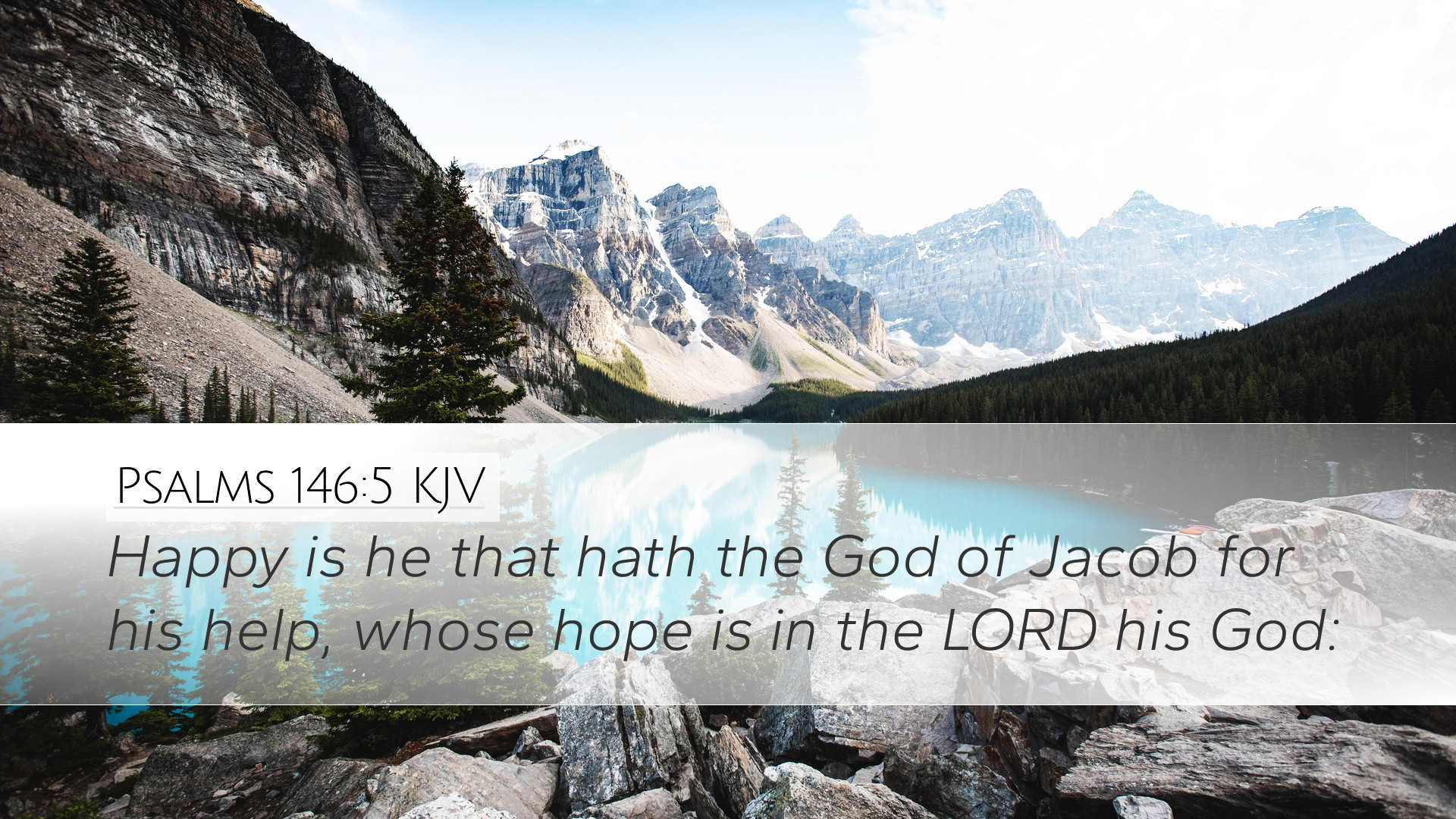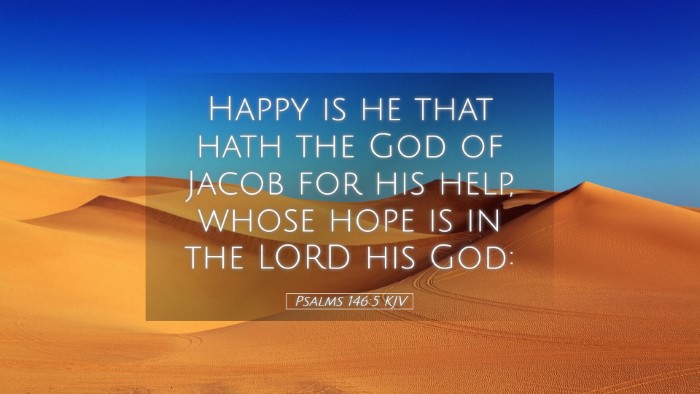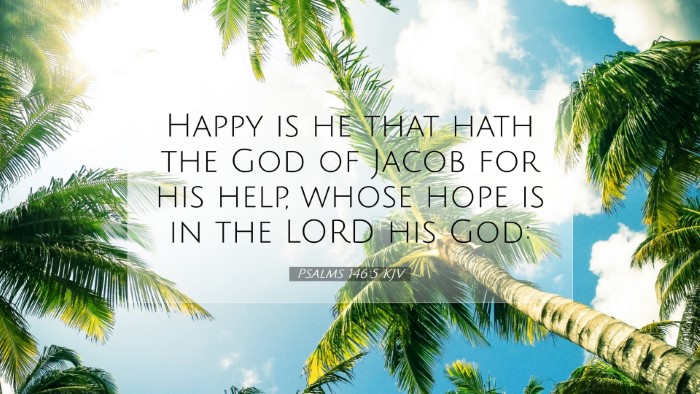Psalms 146:5 Commentary
Bible Verse: "Blessed is he whose help is the God of Jacob, whose hope is in the LORD his God."
Introduction
This verse stands as a powerful reminder of the blessings that accompany those who seek their help and hope in God. It emphasizes trust in the divine providence, contrasting the limitations of human dependence with the eternal support found in the Creator. The depth of this verse resonates with believers, encouraging them to find strength and assurance through faith.
Commentary Insights
Matthew Henry's Commentary
According to Matthew Henry, this Psalm serves as a practical guide to the believer, encouraging reliance on God's assistance. He notes that those who place their trust in the "God of Jacob" are particularly blessed because Jacob represents a lineage of struggle and ultimate triumph through faith. Henry highlights that the blessed individual finds help in God, not merely as a distant deity but as a personal helper who is invested in their well-being.
Albert Barnes' Commentary
Albert Barnes elucidates that the phrase "whose hope is in the LORD his God" signifies an active, conscious decision to rely on God. He explains that hope in the Lord is not a passive expectation but an energetic and vibrant confidence in God's faithfulness. This hope transcends worldly circumstances and stands firm against trials. Barnes emphasizes that true blessedness is found in recognizing one’s dependence on God, aligning with the biblical theme of reliance over self-sufficiency.
Adam Clarke's Commentary
Adam Clarke observes that the repetition of "God of Jacob" carries great significance, referencing the faithfulness demonstrated through the life of Jacob. Clarke notes that Jacob experienced numerous trials and wrestled with God, thus portraying God as a refuge for the troubled. The mention of Jacob serves as a reminder of God's unchanging nature and His willingness to aid those in need. Clarke points out that the Psalmist calls attention to the blessings that arise from a personal relationship with God, reaffirming that the true blessedness comes through acknowledging Him as the ultimate source of help.
Theological Implications
This verse presents vital theological implications regarding human reliance on God. It mentions the "God of Jacob," emphasizing a core tenet of biblical faith: that God is intimately involved in the lives of His people. The acknowledgment of God in the believer's life fosters a sense of hope and assurance against the uncertainties of life.
Blessedness Defined
The term "blessed" signifies a state of happiness rooted in divine favor. This blessedness is not merely a circumstantial joy but a deep-seated peace that comes from a faithful relationship with God. It speaks to the completeness and fulfillment found in depending on the Lord. The Psalmist underscores that true happiness flows from recognizing God as one's ultimate help.
Human Limitations vs. Divine Support
The contrast between the divine help and human limitations is a critical theme in this verse. While humans often fail and fall short in providing ultimate support to others, God is portrayed as unwavering and trustworthy. In a world often characterized by instability and brokenness, this verse serves as a reminder that God's support is constant and everlasting.
Practical Application
For pastors, theologians, and students, this verse provides a profound basis for encouraging congregations and personal reflection. It invites examination of what sources of hope are leaned upon in life. Are they worldly pursuits, or are they firmly placed in God's faithful character?
Encouragement in Trials
In times of difficulty, believers are encouraged to remember that their help comes from God. This verse can be used as a source of comfort in sermons and counseling sessions, fostering a reliance on God's eternal nature rather than transient human strengths.
Faith vs. Doubt
The phrasing also serves to combat doubt. Engaging with this verse empowers believers to affirm their faith, reminding them that their hope is not misplaced but is, in fact, placed in the Creator who is both powerful and loving. Pastoral leadership can draw on the insights of this commentary to guide individuals through uncertainty, reinforcing the blessings of dependence on God.
Building a Culture of Hope
This verse can inspire communities of faith to cultivate a culture centered around hope in God. Churches can develop programs or teachings that focus on fostering trust in divine providence, helping congregants to share testimonies of God’s faithfulness akin to Jacob's experiences, thereby building communal strength in God’s promises.
Conclusion
Psalm 146:5 encapsulates the profound truth that true blessedness is found in God, specifically as the “God of Jacob.” In drawing from the wisdom and insights of esteemed commentators like Matthew Henry, Albert Barnes, and Adam Clarke, we understand that reliance on God yields hope, security, and joy. Believers are reminded to embrace this truth and share it with others, promoting a life that is blessed by faith and rooted in God's unwavering support.


